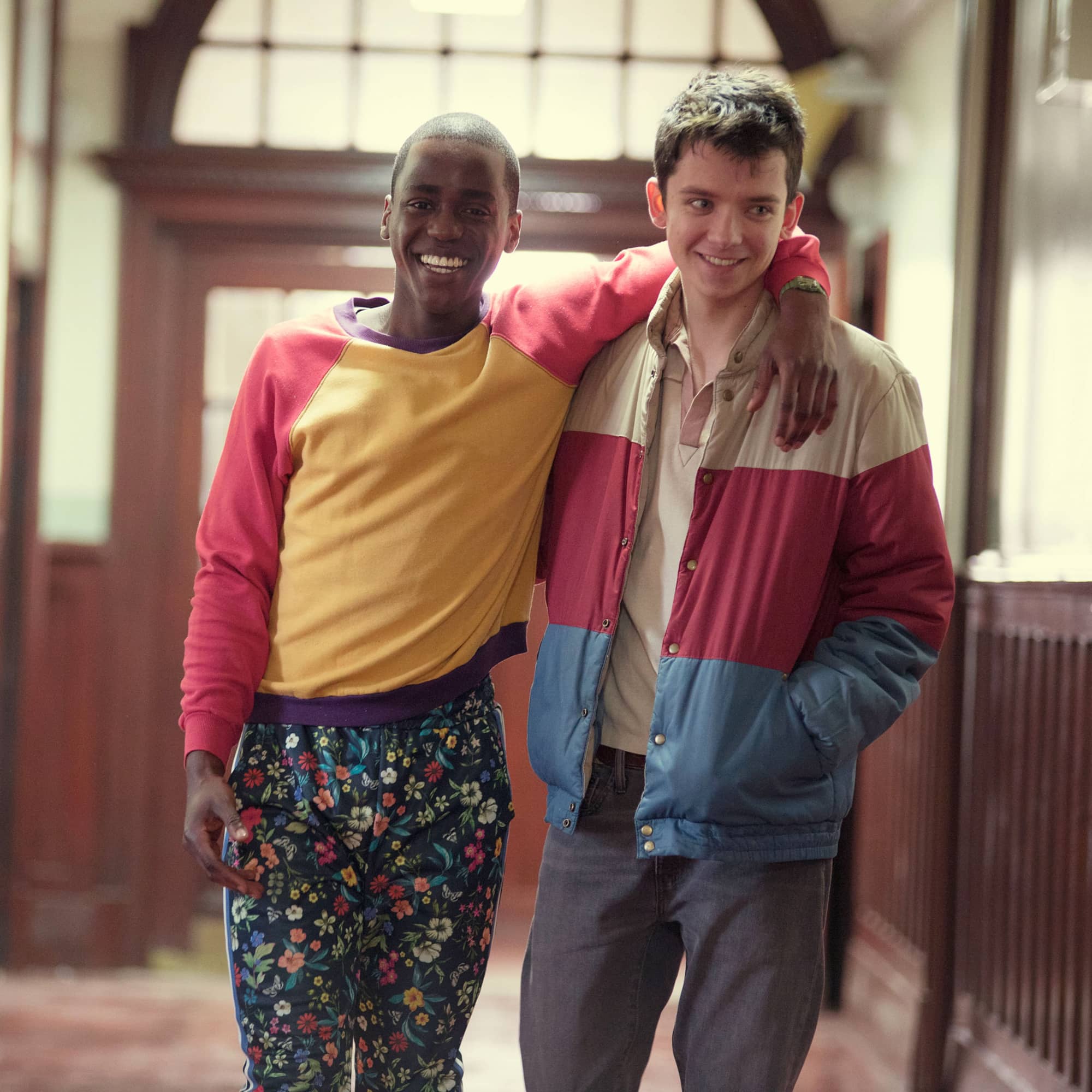
- POPSUGAR Australia
- Celebrity
- Sex Education S3 Adds Much-Needed Nuance to Conversations About Recovering From Trauma
Sex Education S3 Adds Much-Needed Nuance to Conversations About Recovering From Trauma


Trigger Warning: This article contains information about sexual assault which may be triggering for some. Please read with caution and exercise self-care.
Since Sex Education first dropped onto Netflix back in 2019, the series has tackled taboo topics relating to the sex lives of teenagers and added nuance to conversations about consent, coming out, and recovering from traumas like sexual assault. Now, with the third season landing, we’re being thrust back into the colourful (in more ways than one) world of Moordale High — and it’s already stirring up frank conversations about these very topics.
From the outset, this season is different from the two before it. “This season, with the introduction of [the new school principal] Hope, and all of the self-expression that she strips away from each of the students, the real world is brought into the story and we see elements of how each of the characters would react [to issues outside Moordale High],” Ncuti Gatwa (who plays Eric Effiong) tells POPSUGAR Australia.
A lot changes this season, but it’s the themes that don’t change and the show’s ability to re-mine the characters’ same traumas each season, that makes the show so powerful and true to life. Take Aimee Gibbs (played by Aimee Lou Wood), for example. Following a sexual assault on the bus in season two, it would have been simpler for the show’s creator, Laurie Nunn, to consider Aimee healed and that storyline done and dusted. But she doesn’t do that.
Instead, we see Aimee seek therapy to help understand why she still doesn’t want her boyfriend to touch her, that the assault wasn’t her fault, and along the way, she also starts to learn more about vulvas — an experience she finds extremely profound. It’s this experience of seeing Dr Jean Millburn (played by Gillian Anderson) for counselling that helps us understand Aimee’s trauma that bit deeper. “The beating heart of Sex Education is therapy and the show is about communication, and it does offer up a model of what it could be like if everyone communicated,” Wood tells POPSUGAR Australia.
But that doesn’t mean Aimee’s healing is linear, in fact, it’s far from it. “There’s such a lovely resolution in Aimee’s storyline in season two when she gets back on the bus with the girls and she tells her boyfriend that she’s ready for a hug,” explains Wood. “But, actually, it wouldn’t be real life for that to be the end of the journey — what’s real life is that it’s the start, and season three is a continuation of that.
“That’s what Sex Education does really well: it goes deep on one issue rather than broadening it. The [sexual assault] is going to cause issues for Aimee throughout her whole life. Forever.” As Wood explains, the way Sex Education peels back layer after layer of each individuals’ issue, every season, is what makes it feel so real.

For Eric, it’s the challenge of figuring out who he is outside Moordale, when he travels with his mum and sisters back to his home in Nigeria for a family wedding. Landing in a country where being gay is considered a crime, Eric is forced back into the closet with his extended family, even after fighting so hard for acceptance in England.
“It was very interesting to see how Eric navigates his culture in Nigeria,” says Gatwa, adding that working through these types of challenges repeatedly is what we all do in real life. “It’s something teenagers always hear, that ‘it’s not going to be like this in the real world’. Because the students aren’t only going to interact with, like, Mr Groff and Mr Hendricks down at the shop [for the rest of their lives]. They need to go out into the world and flourish — and you see with the way they’ve written this series, how they are going to do that.”
All three seasons of Sex Education are available to stream on Netflix, right now.
If you or someone you know has been the victim of a sexual assault, please contact the Sexual Assault & Domestic Violence National Help Line on 1800 Respect (1800 737 732) or head to The Australian Human Rights Commission for a list of state by state resources.



